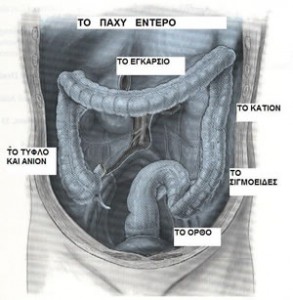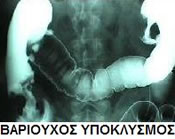The large intestine, or colon, is the last section of the gastrointestinal tract. It is responsible for  absorbing water and converting remnants of undigested food into faeces.
absorbing water and converting remnants of undigested food into faeces.
The colon begins on the right side of the abdomen, and ends at the rectum on the left side, where faeces are temporarily stored, before they are discarded from the body through the anus.
Colectomy is a surgical procedure to remove all or part of the large intestine.
Some colon diseases may be asymptomatic and can be revealed accidentally. However, if patients notice any of the symptoms below, they should see a doctor, so that potential problems are treated in a timely manner.
• Persistent constipation
• Severe diarrhoea
• Pain and sensitivity in the lower abdomen, accompanied by shivering, fever or vomiting and severe constipation
• Mucus and blood in the faeces
• Bleeding
•Any blood loss appearing in the lower digestive system needs to be investigated.
COLON DISEASES
The large intestine can be affected by numerous diseases, such as:
• Angiodysplasia
• Mechanical or occlusive ileus
• Diverticulosis – diverticulitis
• Ulcerative colitis
• Malignant tumours (adenocarcinoma, carcinoid tumour, lymphoma, sarcoma)
• Benign tumours (adenomatous polyp, papillary adenoma, lipoma, leiomyoma)
• Crohn’s disease
• Rectal prolapse
• Stenosis or occlusion of mesenteric arteries or veins
• Gardner syndrome
• Peutz – Jeghers syndrome
• Bowel volvulus
However, the decision for having a surgery is made based on both the severity of the problem and the kind of problem the patient has.
Depending on the kind and severity level, colon problems can cause:
• Intestinal perforation and leakage of the faeces into the abdomen
• Peritonitis
• Severe bleeding from the anus
• Intestinal obstruction
• Intestinal stenosis
• Abscess formation around the bowel
• Fistula development between the bowel and other abdominal organs
• Increased cancer possibility
If patients run one of the above risks, performing a colectomy is usually considered necessary.
The traditional diagnostic methods for most colon diseases include colonoscopy, barium enema and abdomen CT scans.
Virtual Colonoscopy is undeniably the latest technological achievement in colon imaging methods. It allows the doctor to check the inner part of the organ, without performing regular colonoscopy, which is not always a comfortable procedure for the patient.






